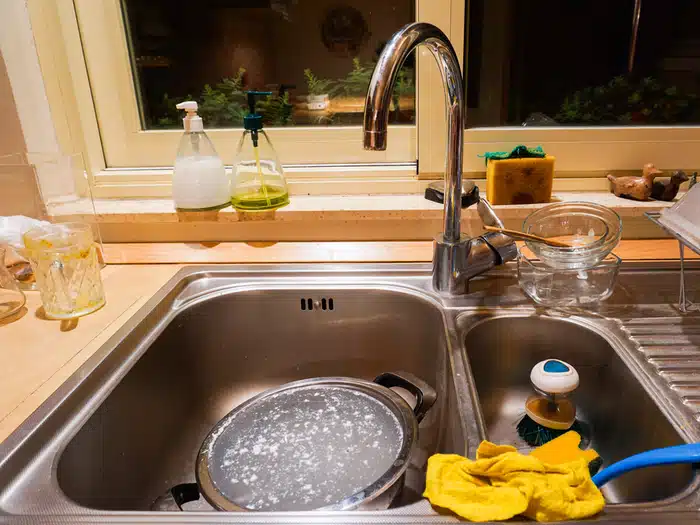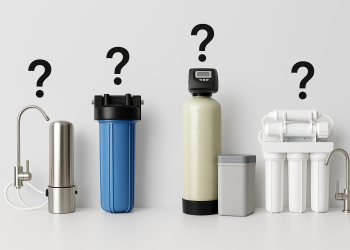Table of Contents
Your home’s plumbing system is a workhorse, pushing food, waste, toiletries and other items to the septic tank or sewer line day after day. In busy, modern times, it’s easy to flush food waste or products down the drain without thinking twice.
Unfortunately, the food and other products that enter your drains can cause costly problems for your plumbing system and the environment. Learn more about what should not go down your drain and how to properly dispose of those items here.
Expanding Foods
Many foods, such as pasta and oatmeal, expand when soaked in water, causing clogs as they travel down the drainage line. This can result in time-consuming and often expensive drain cleaning or repairs.
Coffee Grounds
Some online sources recommend using coffee grounds to reduce odors in your drain or garbage disposal. However, you’ve probably noticed your used coffee grounds lump together, creating a grainy, mucky substance. This dense sludge can clog drain lines.
Oils and Fats
Many people know that bacon grease, oils and fats shouldn’t go down the drain, but they don’t know exactly why. Old meat fat, bacon grease and other oils create thick, gooey substances that stick to the walls of pipes and eventually become so thick nothing can pass through. Oils, fats and grease account for at least 47% of sewer overflows in the U.S. each year.
Toiletries
It’s true that many paper products, like cotton balls and paper towels, are biodegradable. However, they don’t dissolve the moment they hit your pipes. Many feminine products also expand in water, causing them to be a common source of drainage clogs.
Medications
Flushing expired or unwanted medications used to be a recommended disposal method. Unfortunately, flushed medications can end up in the water supply, causing harm to waterways and the creatures that inhabit them. Antibiotics can kill necessary bacteria and may disrupt marine life metabolisms, ultimately affecting the food chain. Take unused medications to disposal facilities instead.
Paint
Paint is another substance that can cause significant issues for the environment and your pipes. While you may not plan on pouring full buckets of paint down the sink, you may be washing brushes or disposing of extras from a kids’ craft day.
Chlorinated solvents, benzene, toluene, metals and numerous other chemicals are common paint components that can be toxic for humans, wildlife and the environment. Oil and latex paints can also cure within the pipes, causing clogs that are challenging and costly to remove.
Infographic created by
Tunnel Vision Pipeline Services, a CIPP lining company
Dispose of Them Here Instead
Now that you know numerous items that can cause costly damage to drains and irreversible problems for the environment, you may be wondering where to dispose of them. Consider creating a compost pile for biodegradable paper products, coffee grounds and other food scraps. Otherwise, throw these items in the trash, and dispose of toxic items (such as paint) or medications at designated disposal facilities.
Using eco-friendly alternatives is also an effective way to reduce waste while protecting the environment. Opt for microfiber rags instead of paper towels, and use reusable diapers and environmentally friendly feminine care products. Choose organic or all-natural products when possible.
To learn more about additional health and beauty products, medications, foods and toiletries that should not enter your home’s drainage system, please see the accompanying infographic.








